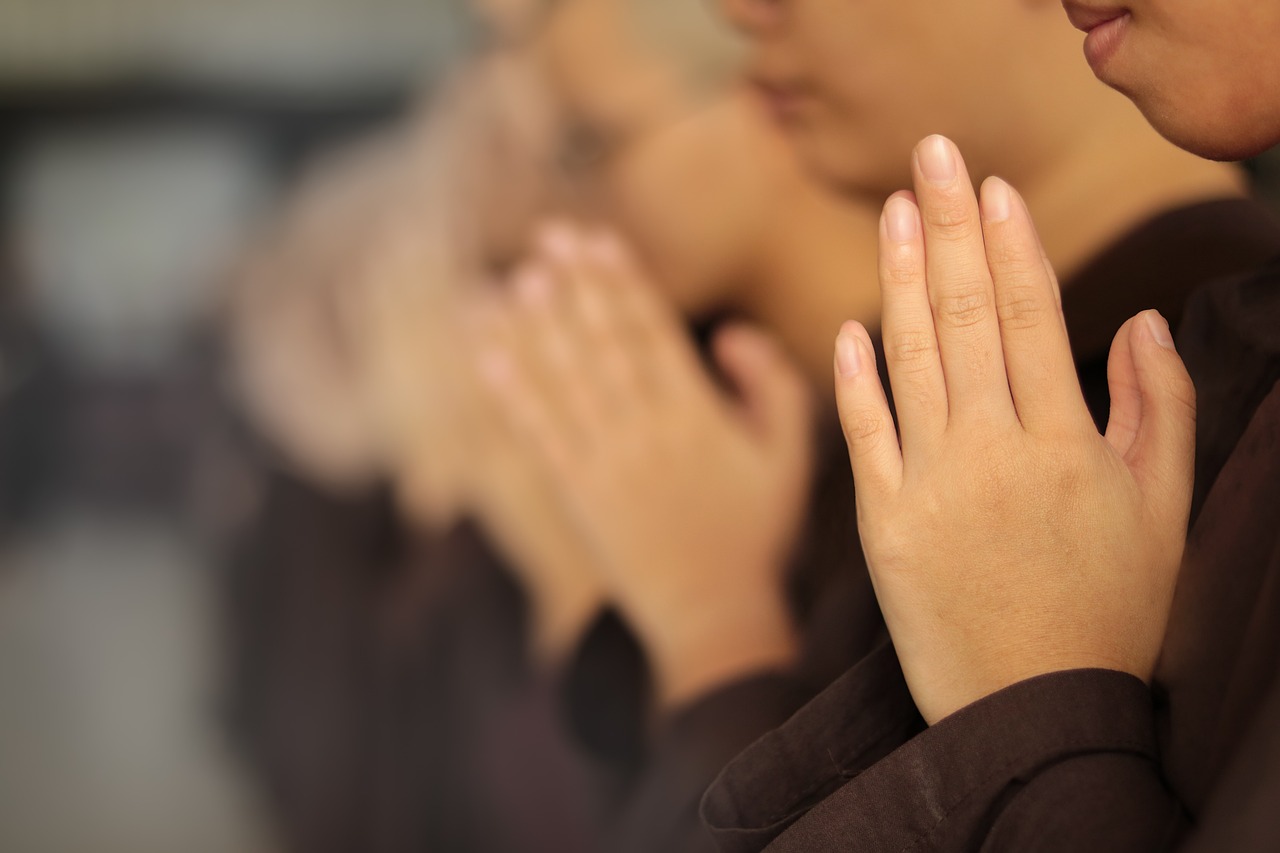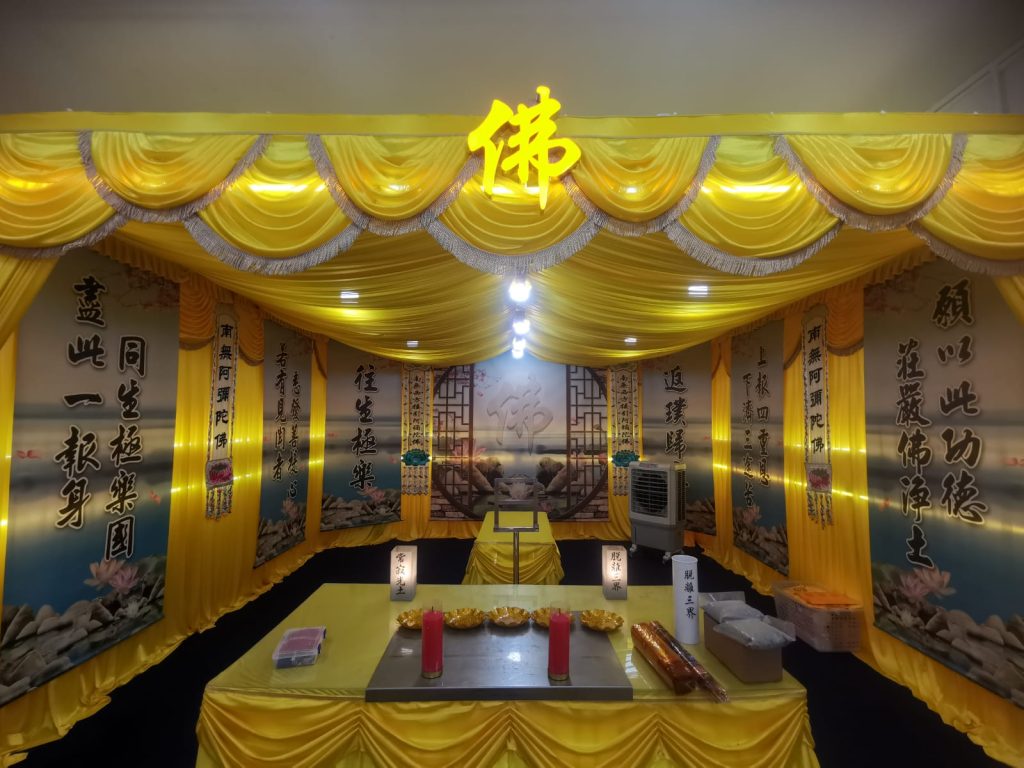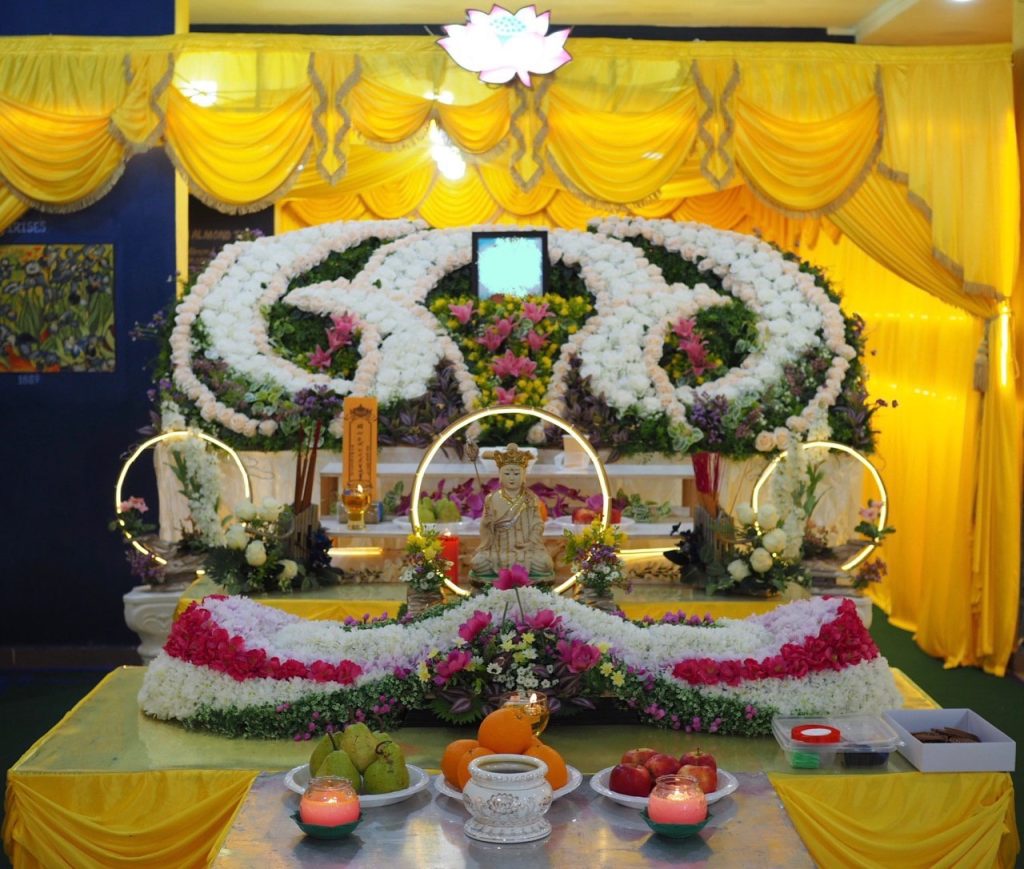
In the bustling, modern city of Singapore, where traditions and cultures blend seamlessly, the practice of Buddhism has found its place in the hearts of many. For those who follow the teachings of Buddha, every aspect of life, including death, is guided by profound beliefs and rituals. Buddhist funeral practices in Singapore are not just about bidding farewell to a loved one; they are a reflection of compassion, mindfulness, and respect for the departed soul.
In this article, we will take you on a journey through the age-old Buddhist funeral customs, their modern adaptations, and how they continue to hold significance in today’s fast-paced world. Whether you are a devoted Buddhist, a curious observer, or someone seeking guidance on arranging a Buddhist funeral, this guide aims to provide you with a clear understanding of the practices, their significance, and how they fit into the contemporary Singaporean context.
Join us as we delve into the fascinating world of Buddhist funeral practices, shedding light on their historical roots, core principles, and the ways in which they have evolved to meet the needs of the modern era. In the midst of skyscrapers and technology, these ancient rituals continue to offer solace and wisdom, transcending time and place.
To truly appreciate Buddhist funeral practices in Singapore today, it’s essential to understand their historical roots. Buddhism, founded by Siddhartha Gautama, or the Buddha, over 2,500 years ago, teaches that life is marked by impermanence and suffering. Death, in Buddhist philosophy, is seen as a natural part of this cycle.
Over centuries, Buddhist funeral practices have evolved, influenced by various cultures and regions. As Buddhism spread across Asia, it adapted to local customs and beliefs. In Singapore, with its multicultural landscape, these practices have been shaped by influences from the Chinese, Thai, Sri Lankan, and other Buddhist traditions.
Central to Buddhist funeral practices are a set of core beliefs and principles:

In the modern world, globalization, technological advancements, and changing lifestyles have influenced how Buddhist funeral practices are conducted in Singapore. While the essence of these rituals remains unchanged, there have been significant adaptations to meet the needs and preferences of contemporary society.
Technology: In today’s digital age, Buddhist funerals are often live-streamed to allow distant family members and friends to participate virtually. Online platforms and apps facilitate the arrangement of funeral services.
Eco-friendly Options: With growing environmental awareness, some Buddhist funerals in Singapore now offer eco-friendly alternatives like green burials and cremations that use fewer resources.
Personalization: Modern Buddhist funerals can be tailored to reflect the preferences and beliefs of the deceased and their family. This includes the choice of Buddhist traditions, rituals, and even the location of the ceremony.
In the modern world, Buddhist funeral practices continue to provide a sense of connection, comfort, and spiritual guidance to individuals and families in Singapore. These adaptations ensure that the timeless wisdom of Buddhism can coexist harmoniously with the demands of contemporary life.
In Singapore, traditional Buddhist funeral rituals have a profound significance, offering a structured and meaningful way to bid farewell to loved ones. These rituals typically follow a well-defined process:
Buddhism is not a monolithic tradition, and funeral practices can vary widely based on the specific Buddhist tradition followed by the family. Singapore’s multicultural society means that various Buddhist traditions coexist, including Theravada, Mahayana, and Zen Buddhism, each with its own unique customs and rituals.
Additionally, regional influences and cultural backgrounds may lead to variations in Buddhist funeral practices. For example, Singaporean Chinese Buddhists may incorporate elements from Chinese culture, while Singaporean Thai Buddhists may follow Thai Buddhist traditions.
In recent years, there has been a growing trend toward adapting funeral practices to the preferences of the deceased and their families. Some may choose to blend traditional Buddhist rituals with elements of other religions or secular customs, highlighting the flexibility and inclusivity of modern Buddhist funeral services in Singapore.

While Buddhist funeral practices remain deeply rooted in tradition, they are not without their challenges and controversies in the modern world. Some of these include:
Despite these challenges, Buddhist funeral practices in Singapore continue to evolve and thrive, finding ways to uphold tradition while remaining relevant to the needs of the modern society.
Buddhism has journeyed far from its Asian roots and has taken root in Western countries, including Singapore. In these diverse and multicultural societies, Buddhist funeral practices have naturally found a place, and they often adapt to suit the cultural context of the West.
Adoption of Buddhist Funeral Practices: As Singaporeans and other Asians have migrated to the West, they have brought their Buddhist traditions with them. This has led to the establishment of Buddhist temples, meditation centers, and funeral services catering to the needs of the local Buddhist communities.
Cultural Adaptation: In Western countries, Buddhist funeral practices sometimes incorporate elements from the local culture. For example, a funeral service may include readings or music that resonate with the Western audience while maintaining the core Buddhist rituals.
Interfaith Collaboration: Western Buddhists often encounter people from various religious backgrounds. Buddhist funeral services in the West sometimes involve interfaith collaboration, where representatives from different religions offer blessings or words of comfort, promoting harmony and understanding among diverse communities.
Personalization: Western Buddhists, like their counterparts in Singapore, appreciate the ability to personalize funeral services. This may involve choosing specific Buddhist traditions or practices that align with the individual’s beliefs and preferences.
Community Support: Buddhist communities in Western countries often play a vital role in supporting individuals and families during bereavement. They offer not only spiritual guidance but also emotional and practical support during the grieving process.
In a world that is constantly evolving, the practice of Buddhism and its funeral rituals continue to be a source of guidance and solace for individuals and families, both in Singapore and beyond. The values of compassion, mindfulness, and respect for all life remain at the core of Buddhist funeral practices, reminding us of our shared humanity.
As you navigate the complex terrain of life and death in the modern world, whether you are a devoted Buddhist, someone curious about different cultures, or seeking guidance on arranging a Buddhist funeral, remember that these traditions offer timeless wisdom and a profound connection to the past, present, and future.
In the final part of this guide, we will provide additional resources for those who wish to explore Buddhist funeral practices further and offer our heartfelt support to all who may find solace in these ancient rituals during their times of need.
